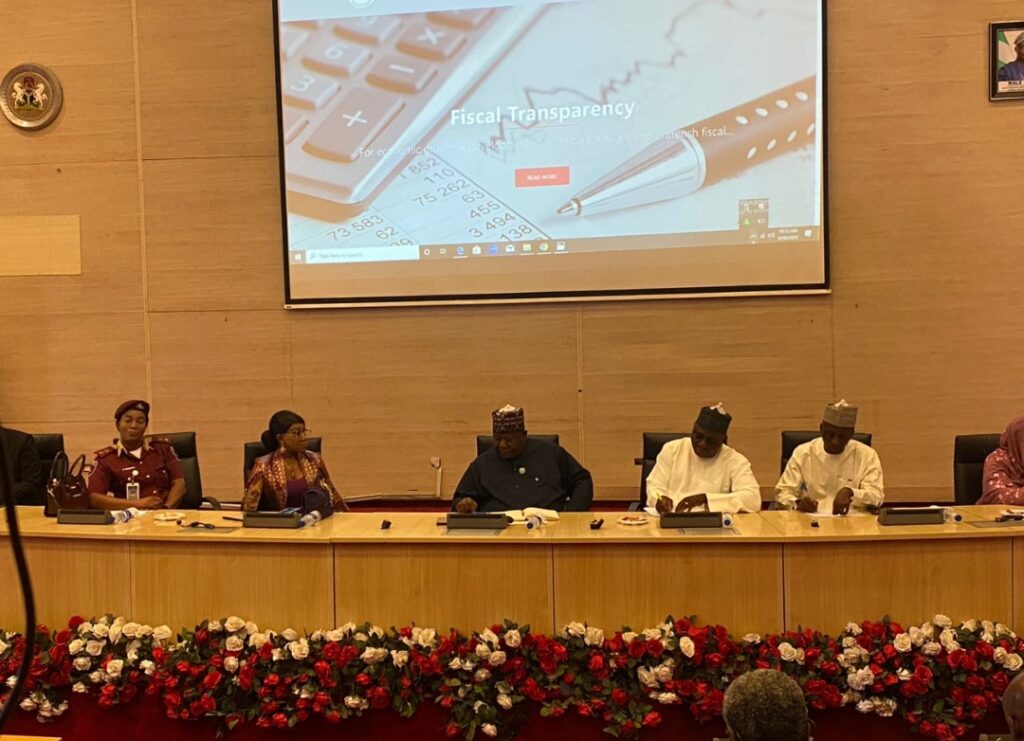Transparency Index: Over 500 Nigerian MDAs Fail Benchmarks, as NOSDRA Tops Ranking
The Transparency and Integrity Index (TII) 2025, shows that a staggering majority of government bodies are hiding information about their budgets, contracts, and staff recruitment from the Nigerian public.
A new report released today in Abuja, on transparency in government has exposed a massive failure in public accountability, revealing that over 500 federal ministries and agencies are operating in secrecy, contrary to the law.
ICIR However report ,painted a grim picture for the vast majority of the 575 MDAs assessed. Only six institutions managed to cross the 50% average threshold, while more than 400 scored between 10% and 36%. Alarmingly, about 100 agencies scored below 10%, with nine—including several key ministries and corporations—recording a complete zero.
AHBN hosts 3rd quarterly review meeting on immunization in Kano
The TII assessment, designed to strengthen integrity mechanisms, checks whether MDAs publish vital information as required by laws like the Fiscal Responsibility Act and the Freedom of Information Act. The focus is on five key areas: financial transparency, procurement, human resources, control of corruption, and citizen engagement.
A prime example of the widespread failure can be seen in the Industrial Training Fund (ITF), which scored a dismal 18%. An official TII assessment of the ITF’s website and portals, conducted using the Centre’s guideline, revealed critical gaps:
Financial Transparency (Score: 2/5): The ITF’s website was found to host only a brief, summarized version of its annual budget. It lacked detailed line-item breakdowns, quarterly budget implementation reports, and audited financial statements for the past three years, as mandated by the Fiscal Responsibility Act.
Procurement (Score: 1/5): While the agency occasionally posted some tender opportunities, there was a complete absence of records for awarded contracts. Details such as contractor names, contract sums, and finalization statuses were missing, violating the transparency provisions of the Public Procurement Act.
Human Resources & Inclusion (Score: 3/5): The ITF performed relatively better here, with its organogram visible and some recruitment information published. However, it failed to disclose its staff nominal roll and had no clear policy on gender inclusion or representation of people with disabilities.
Citizen Engagement (Score: 2/5): The agency maintained functional contact information and social media pages. However, it lacked a dedicated feedback mechanism, published no citizen’s guides to its services, and did not proactively disclose data or reports for public use.
Following NOSDRA on the top performers’ list were the Nigerian Investment Promotion Commission (78.21%) and the Independent Corrupt Practices and Other Related Offences Commission (78.13%).
The Development Bank of Nigeria, Tertiary Education Trust Fund, and Bank of Industry rounded out the only six agencies to score above 50%.
In stark contrast, the list of zero-score institutions included the Nigerian Coal Corporation, the Federal Medical Centre Katsina, and the Metallurgical Training Institute Onitsha.
Most critically, major ministries with vast budgets and direct impact on citizens’ lives, such as the Ministry of Agriculture and Rural Development, Ministry of Water Resources, and Ministry of Youth and Sports Development, also scored zero.
The Ministries of Power, Works and Housing, Health, and Defence all scored below 22%, highlighting what the report calls “persistent opacity in sectors critical to Nigeria’s development.”
While presenting the report, the Executive Director of the Centre, Umar Yakubu, expressed deep concern. “Transparency is a vital principle of good governance, but our findings show a widespread disregard for binding statutes,” he stated. “Most institutions are failing to meet even basic disclosure obligations, effectively locking citizens out of the very government they fund.”
Yakubu added that the 2025 Index reveals that despite government rhetoric on openness, Nigerian citizens continue to face significant barriers in accessing information about how public funds are allocated and spent.
The Centre has urged all MDAs to urgently align with Nigeria’s Open Government Partnership (OGP) Action Plan and ensure that transparency is embedded in their day-to-day operations.


